Recently, the Ninth Session of the Standing Committee of the 14th National People's Congress (NPC) reviewed the Energy Law of the People's Republic of China (Draft) and made it available to the public for public consultation from April 26th to May 25th.
It is proposed that the State improve the guarantee mechanism for the consumption of renewable energy power. Relevant power supply enterprises, power sales enterprises and power users (including enterprises using self-provided power plants to supply electricity) should, in accordance with the relevant provisions of the State, assume the responsibility for the consumption of renewable energy power generation. The competent energy department of the State Council, in conjunction with the relevant departments of the State Council, shall monitor and assess the implementation of the target of the minimum proportion of renewable energy in energy consumption and the responsibility for the consumption of renewable energy power.
Details are as follows:
Notes on the Draft Energy Law of the People's Republic of China
--April 23, 2024 at the Ninth Meeting of the Standing Committee of the Fourteenth National People's Congress
Zheng Jie, Director of the National Development and Reform Commission (NDRC) / Li Chunlin, Deputy Director
The Chairperson, the Vice-Chairpersons, the Secretary-General and the members of the Committee:
I have been entrusted by the State Council with the task of explaining the Energy Law of the People's Republic of China (Draft) (hereinafter referred to as the Draft).
I. Need for drafting and working process
Energy is a fundamental element of economic and social development, and energy security has a bearing on economic development, social stability and national security, and is a major overall and strategic issue. The CPC Central Committee and the State Council attach great importance to energy development and security. General Secretary Xi Jinping creatively put forward the new energy security strategy of "promoting energy consumption revolution, supply revolution, technology revolution, institutional revolution, and strengthening international cooperation in all aspects", and explicitly requested to start the work of legislation and regulations in the field of energy and promote the formulation of energy law. Premier Li Qiang has emphasized the need to do a good job in such key areas as legislative amendments to ensure national energy security.
Since the reform and opening up, especially since entering the new era, China's energy development has made historic achievements, providing strong support and guarantee for high-quality development. At the same time, China's energy development is still facing a rapid increase in consumption, supply security pressure continues to increase, energy structural adjustment is not yet in place, the level of clean and efficient utilization needs to be improved, the energy market system is not sound enough, the reserve system construction is weak, scientific and technological innovation there are shortcomings, and so on many problems and challenges. In particular, the external environment for energy supply security has become more complex and severe, and the factors of instability and uncertainty have increased. Effective response to the above challenges, there is an urgent need to further improve the energy legal system, the rule of law to play a fundamental, stable expectations, the positive role of the long-term. China has formulated a number of individual energy laws and regulations, such as the Electricity Law, Coal Law, Energy Conservation Law, Renewable Energy Law, and Urban Gas Management Regulations, but there is still a lack of a basic, overarching law in the energy sector. The enactment of an energy law on the basis of individual energy laws and regulations is an important measure to strengthen legislation in key areas, and is of great significance in promoting the high-quality development of energy and safeguarding national energy security.
The National Development and Reform Commission (NDRC) and the National Energy Administration (NEA) drafted the Energy Law of the People's Republic of China (Draft for Review) on the basis of in-depth investigation and research, extensive listening to opinions, and public solicitation of opinions. The Ministry of Justice has twice solicited opinions from relevant central departments, local people's governments, enterprises and research institutions, conducted field research, conducted in-depth studies and arguments on relevant issues, communicated and coordinated many times, and repeatedly studied and revised the draft in conjunction with the National Development and Reform Commission, the National Energy Administration and other relevant parties. The draft has been discussed and adopted at the 23rd executive meeting of the State Council.
II. General ideas
The formulation of the energy law adheres to the guidance of Xi Jinping's thought of socialism with Chinese characteristics in the new era, deeply implements the spirit of the 20th CPC National Congress, conscientiously implements the spirit of General Secretary Xi Jinping's important instructions on energy development and security, and the decision-making and deployment of the CPC Central Committee and the State Council, and follows the following general line of thought: first, to promote the high-quality development of energy and safeguard the country's energy security as the main keynote of the legislation, running through the planning of energy as well as the development and utilization, Market system construction, reserves and emergency response, scientific and technological innovation and other system design throughout, all-round consolidation of energy development and security of the rule of law foundation. Secondly, based on the actual situation of China's energy resource endowment, adhere to the first to establish and then break, overall planning, and deal with the relationship between energy security and transformation. Thirdly, we will integrate the current and long-term, and transform the proven policy measures and experience in the field of energy into a legal system, while adapting to the new trend of energy development and enhancing the foresight and leadership. Fourthly, it will accurately grasp the positioning of the legislation, focusing on making provisions on major fundamental issues in the field of energy at the macro level, and playing an overarching role in respect of individual energy laws and regulations.
III. Main elements
The draft consists of nine chapters and sixty-nine articles, which provide, inter alia, for the following:
(a) Adherence to Party leadership. In accordance with the requirements of implementing Party leadership in laws and regulations, it is clearly stipulated that energy work should adhere to the leadership of the Communist Party of China (CPC), implement the overall concept of national security, integrate development and security, implement the new energy security strategy of "four revolutions and one cooperation", adhere to the domestic basis, diversified security, priority of conservation and green development, and accelerate the construction of a new energy system that is clean, low-carbon, safe and efficient. low-carbon, safe and efficient new energy system. (Article 3)
(ii) Improving the energy planning system. In order to give full play to the leading, guiding and standardizing roles of energy planning, the main body for the preparation of energy planning at all levels and for all types of energy planning, the basis for its preparation, the requirements for its preparation, its main contents, the relationship between the two, as well as the procedures for its approval, publication, assessment of its implementation, and its revision have been clarified. (Chapter II)
(c) Improving the energy development and utilization system. Provisions have been made in six main areas: first, clarifying the direction of energy restructuring. Support the priority development of renewable energy, rational development and clean and efficient use of fossil energy, and orderly promotion of non-fossil energy instead of fossil energy, low-carbon energy instead of high-carbon energy. (Article 20) Second, clear energy development and utilization policies. Separately on renewable energy, hydropower, nuclear power, coal, oil, natural gas and other development and utilization of the basic policy orientation of the provisions. (Articles 21 to 26) Third, to promote the clean and efficient and intensive and economical use of energy. It improves the cleanliness, efficiency and intelligence of end-use energy consumption, establishes a mechanism to promote green energy consumption, requires energy users to use energy rationally, and relevant government departments to strengthen energy demand-side management. (Article 27) Fourth, to protect basic energy supply services. Requirements for electricity, gas, heat and other energy supply enterprises to ensure that users have access to safe, continuous and reliable energy supply services. (Article 28) Fifth, strengthening the construction and protection of energy infrastructure. It strengthens the coordination of cross-provincial and regional energy infrastructure construction, and requires enterprises operating energy transmission pipeline network facilities to improve the level of operational safety, and no unit or individual shall engage in activities that jeopardize the safety of energy infrastructure. (Article 29) Sixth, promoting rural energy development. Encourage and support energy development in rural areas, coordinate the construction of energy infrastructure and public service systems in urban and rural areas, and give priority to guaranteeing rural living energy and agricultural production energy when temporary energy supply shortages occur in rural areas. (Article 30)
(d) Strengthening the construction of the energy market system. In order to accelerate the establishment of a diversified, unified, open, competitive and effectively regulated energy market system, the draft stipulates that the State shall promote the separation of natural monopoly and competitive businesses in the energy sector; coordinate and promote the construction of a unified national energy trading market; require the opening up of energy transmission pipeline and network facilities to qualified entities on a fair and non-discriminatory basis; encourage the synergistic development of upstream and downstream enterprises in the energy sector and synergistic advancement of the entire industrial chain; promote the establishment of an energy price formation mechanism that is mainly determined by market factors; improve the energy price control system; and promote international investment and trade cooperation in the energy sector. chain; promoting the establishment of an energy price formation mechanism determined mainly by market factors and improving the energy price regulation system; and promoting international investment and trade cooperation in the energy sector. (Chapter IV)
(e) Improving the energy reserve system and emergency response system. In order to give play to the energy reserves strategic security, macro-control and respond to urgent needs and other functions, enhance the energy emergency response capacity, the draft provides for the establishment and improvement of efficient and coordinated energy reserve system, scientific and rational determination of the type of energy reserves, scale and mode; the implementation of the combination of governmental reserves and enterprise reserves, physical reserves and reserves and production capacity reserves, mineral reserves and integrated; government reserves storage operators should establish and improve the internal management system To ensure the safety of government reserves, energy companies should implement the responsibility of social reserves; establish and improve the energy forecasting and early warning system, strengthen the construction of the energy emergency response system, develop energy emergency plans, improve the emergency disposal measures. (Chapter V)
(vi) Strengthening energy science and technology innovation. In order to strengthen the role of scientific and technological innovation in supporting energy development and security, the draft provides for encouraging and supporting the research, development, demonstration and popularization and application of basic, key and cutting-edge major technologies and equipment in the field of energy; formulating and perfecting policies on industry, finance and government procurement, encouraging and guiding social funds to invest in energy scientific and technological innovation; setting up a platform for major energy scientific and technological innovation and relying on major energy projects to concentrate on scientific and technological research and integrated application demonstration, and support the application of advanced information technology; and increase the cultivation of energy science and technology professionals. (Chapter 6)
(vii) Strengthening supervision and management. The supervision and inspection duties of the competent energy department and other relevant departments and the supervision and inspection measures that can be taken, the establishment of a supervisory information system, the strengthening of the credit system of the energy industry, and the improvement of the relevant dispute resolution mechanism are clearly stipulated. (Chapter VII)
(h) Clarifying legal responsibilities. The government and its relevant departments do not fulfill their duties in accordance with the law, undertake electricity, gas, heat and other energy supply enterprises without justifiable reasons to refuse or interrupt the energy supply services, energy transmission pipeline network facilities operating enterprises do not meet the conditions of the main body of enterprises and other fair, non-discriminatory open and provide energy transmission services, as well as the emergence of an energy emergency state of the relevant units and individuals do not assume the obligation of energy emergency or do not cooperate with the emergency response measures and other violations. cooperate in taking emergency response measures and other offenses, stipulating strict legal responsibilities. (Chapter VIII)
I should be grateful if you would consider whether the draft and the above statement are in order.
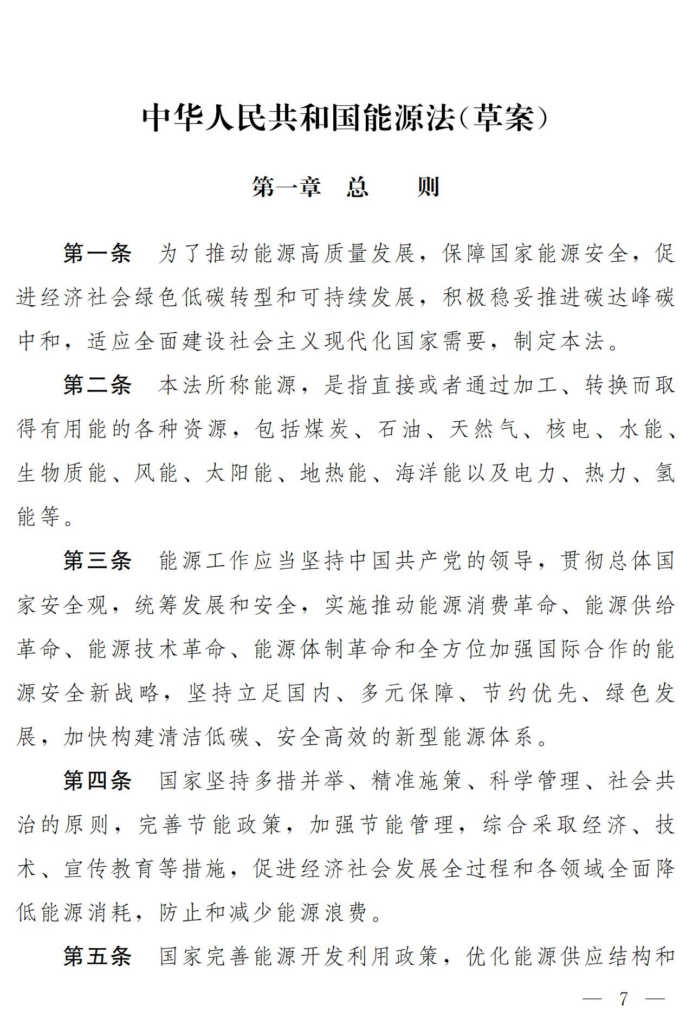
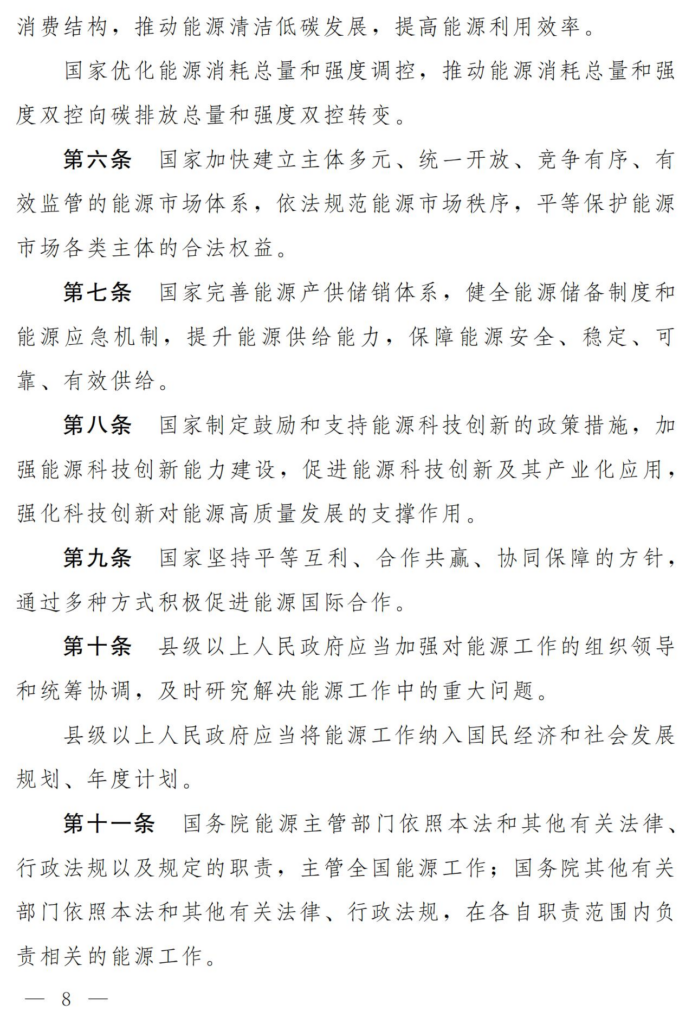
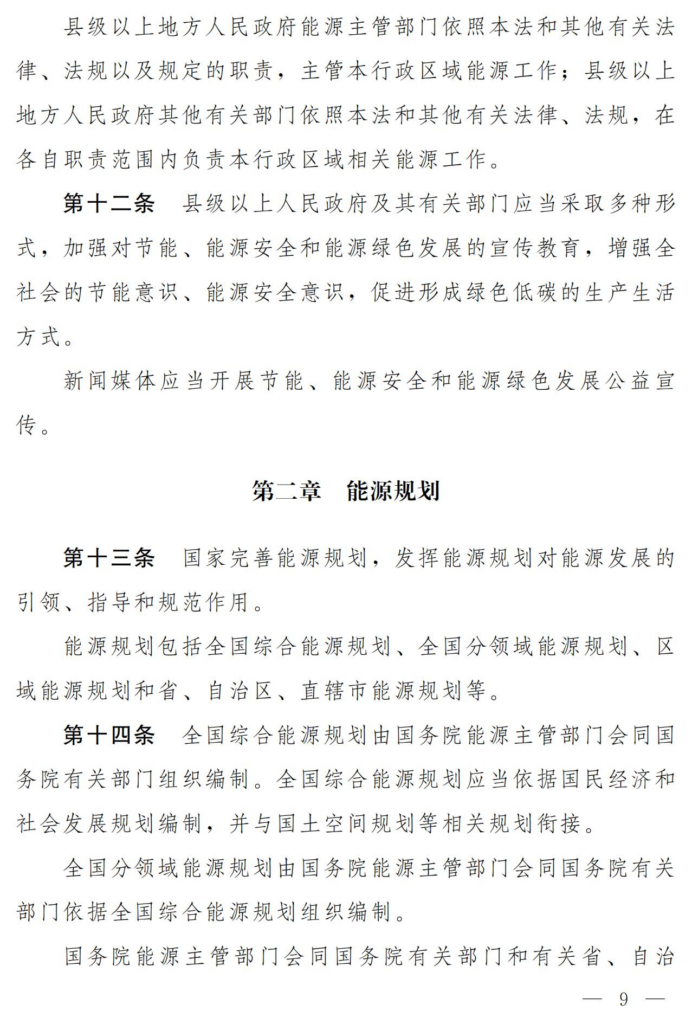
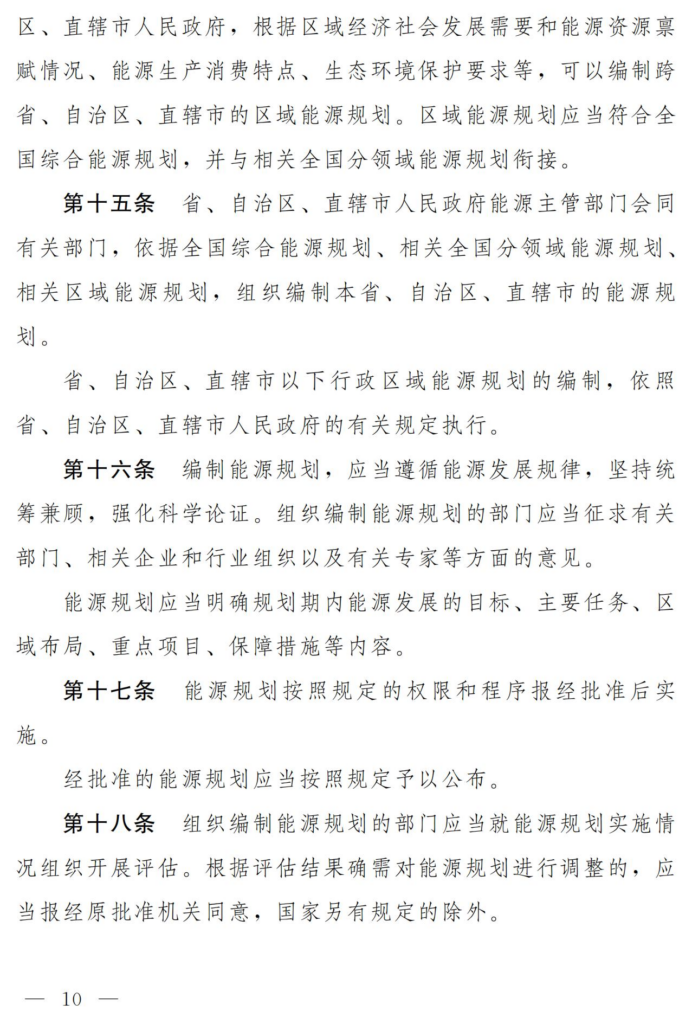
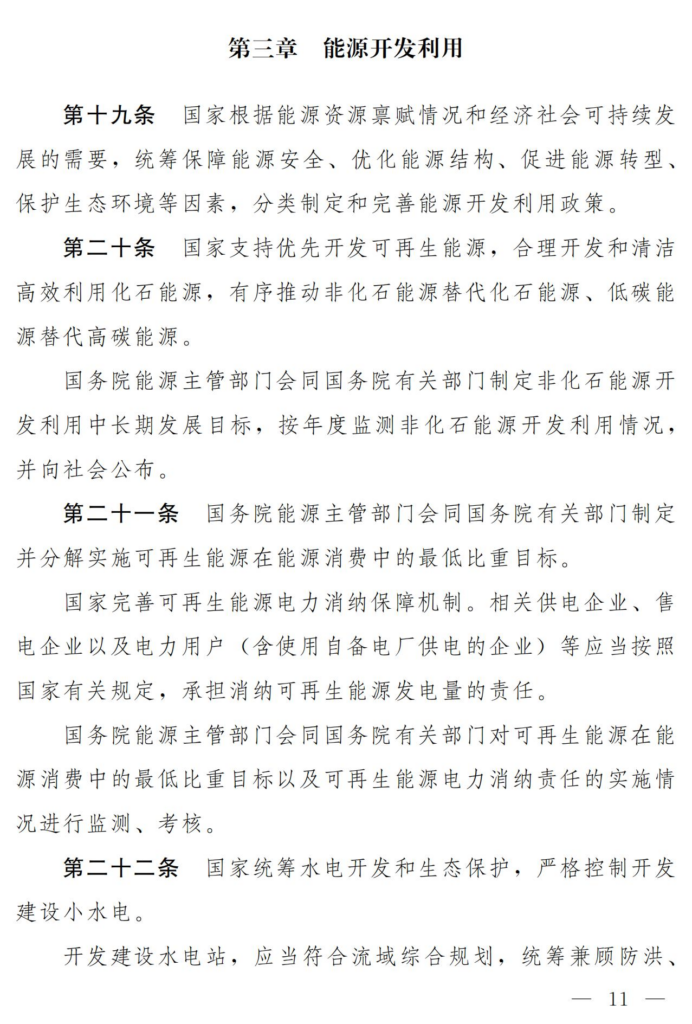
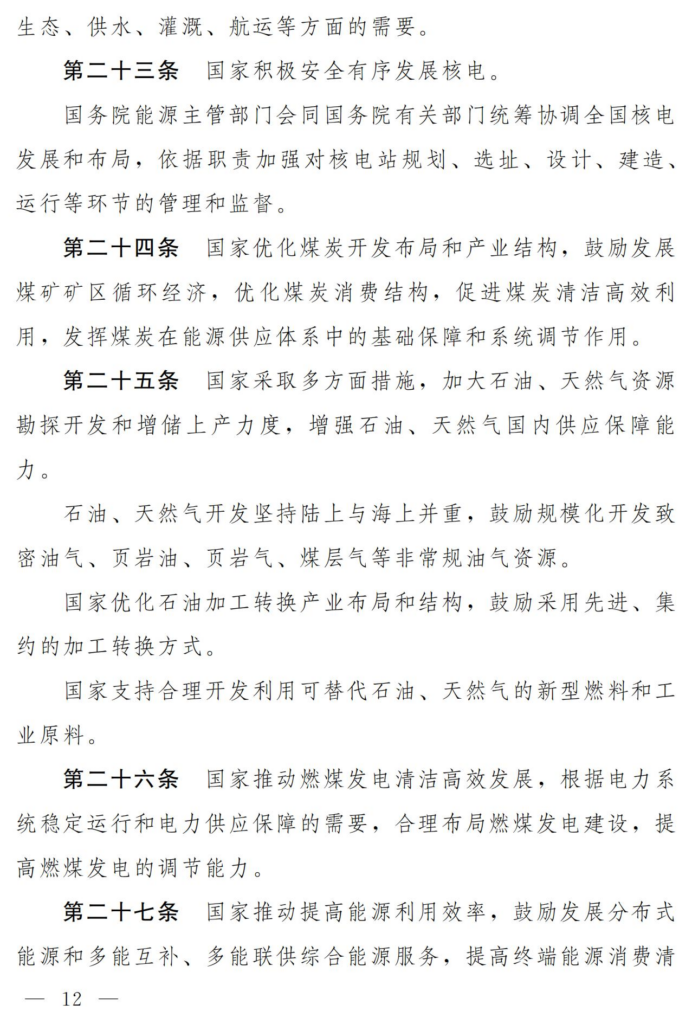
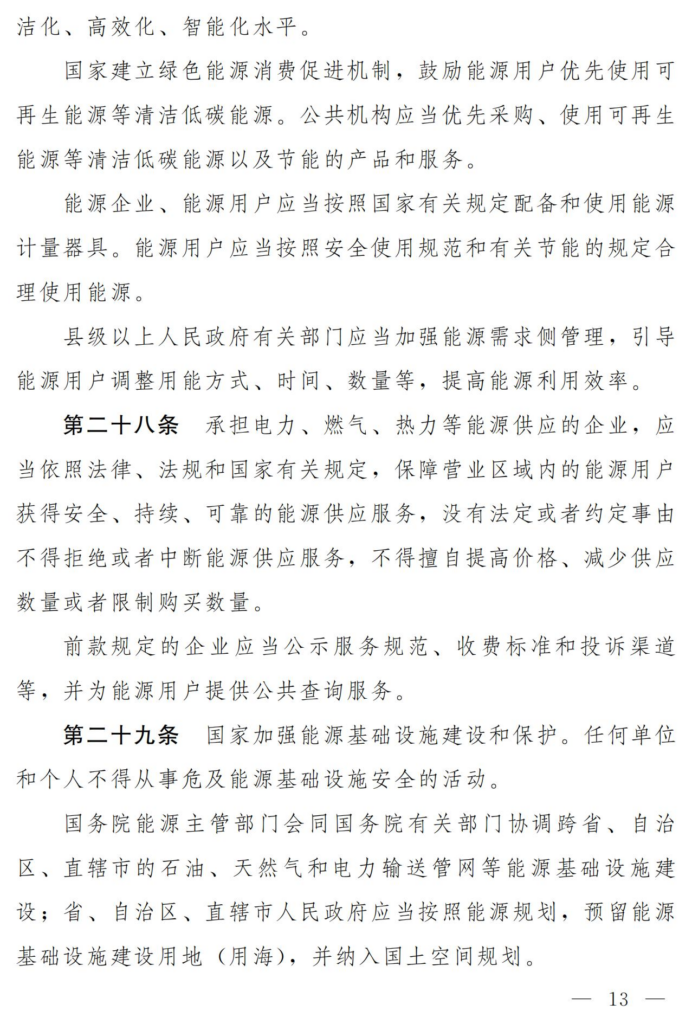
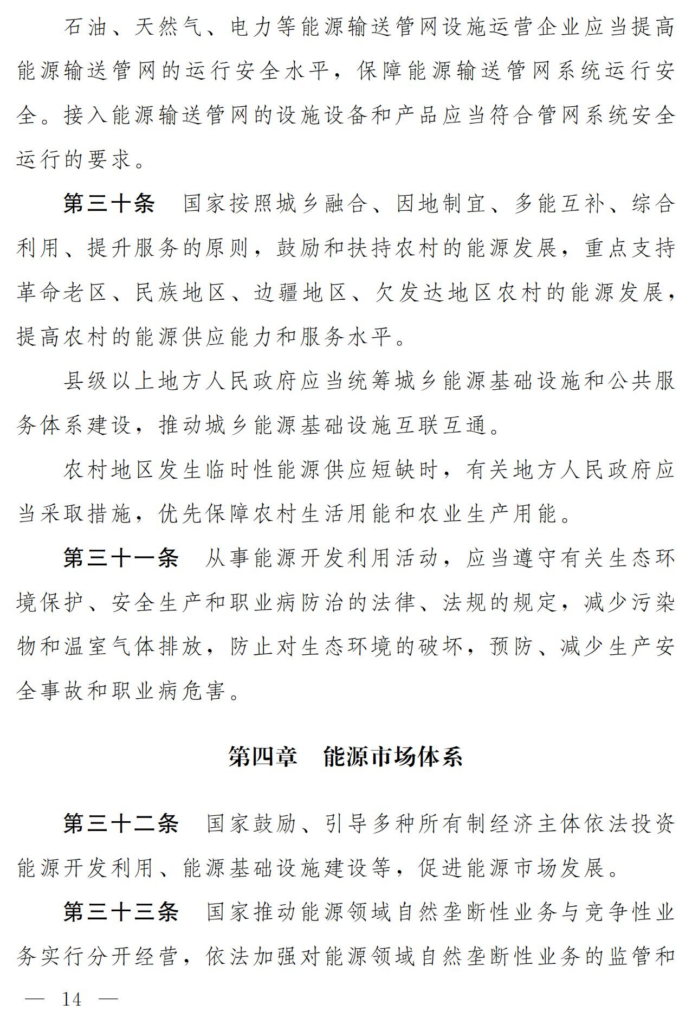
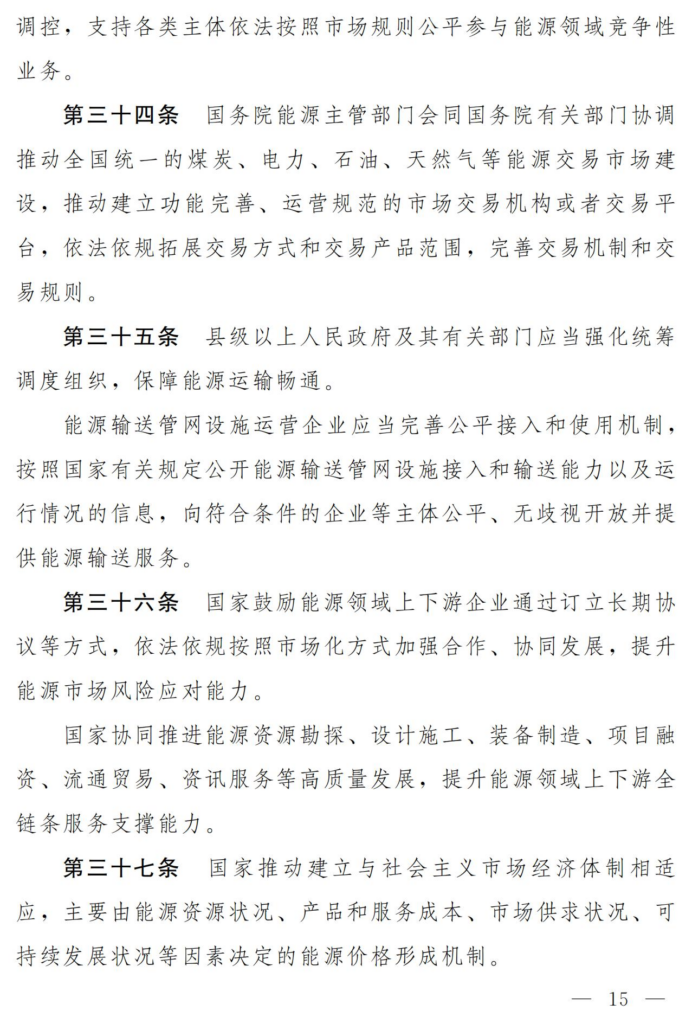
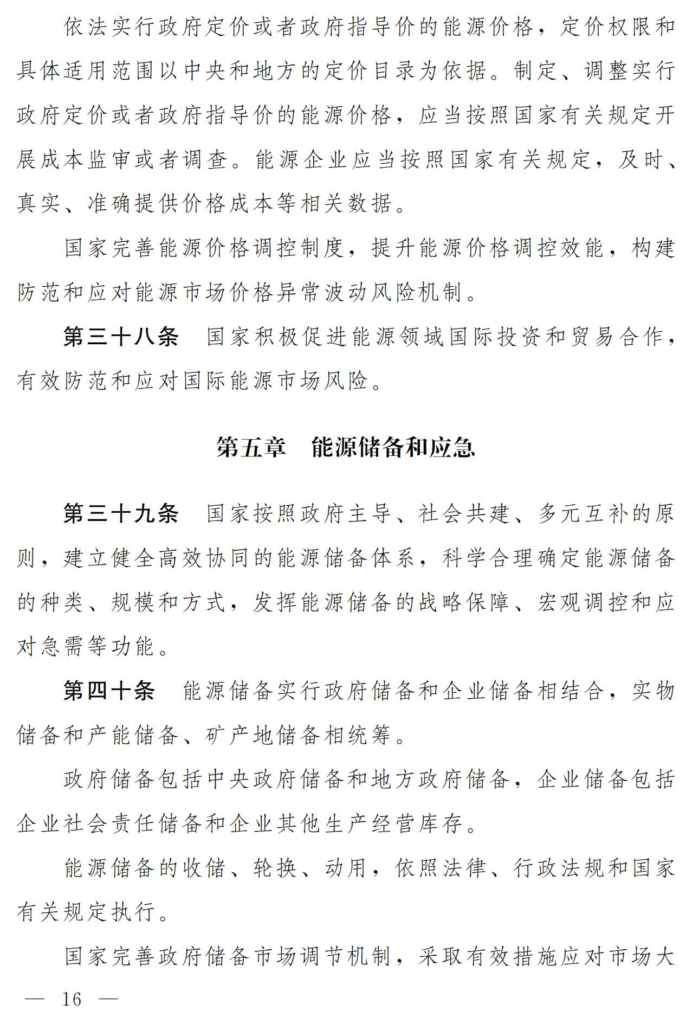
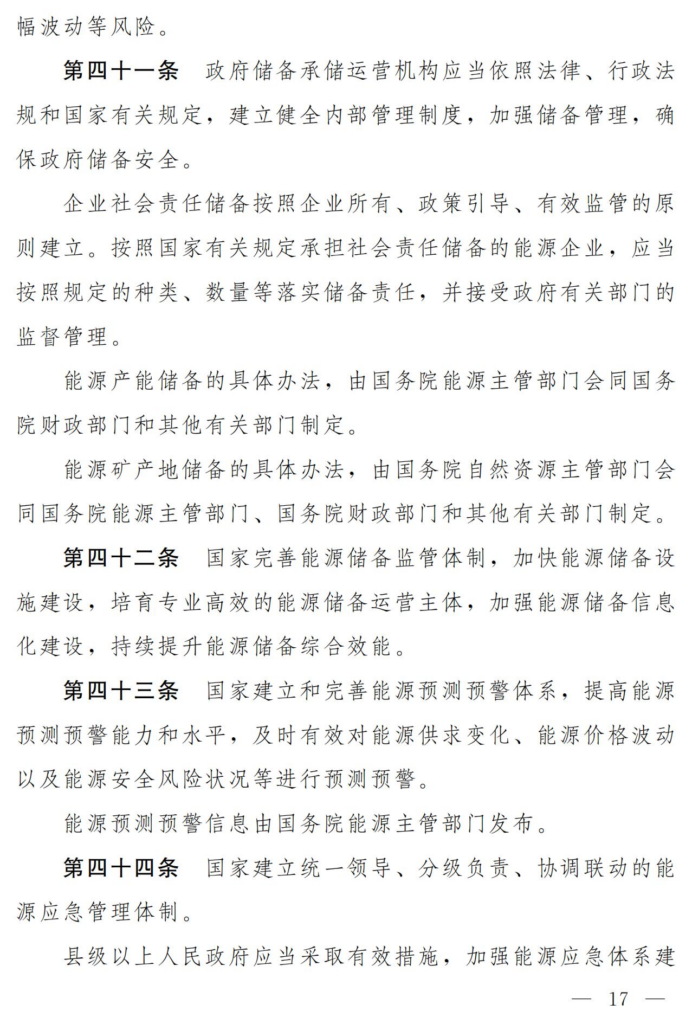
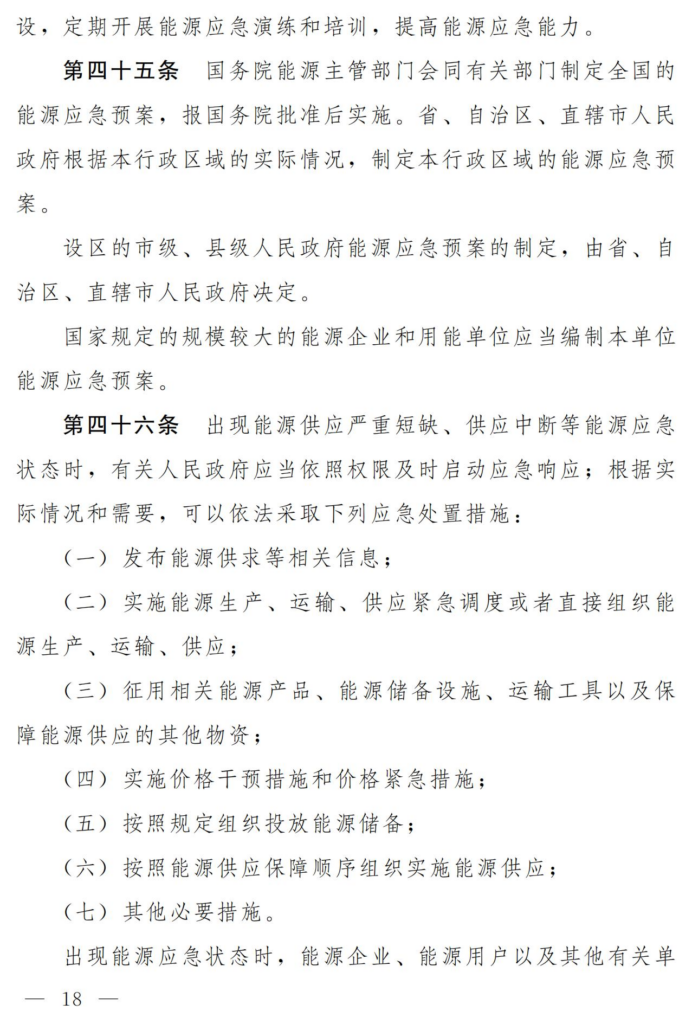
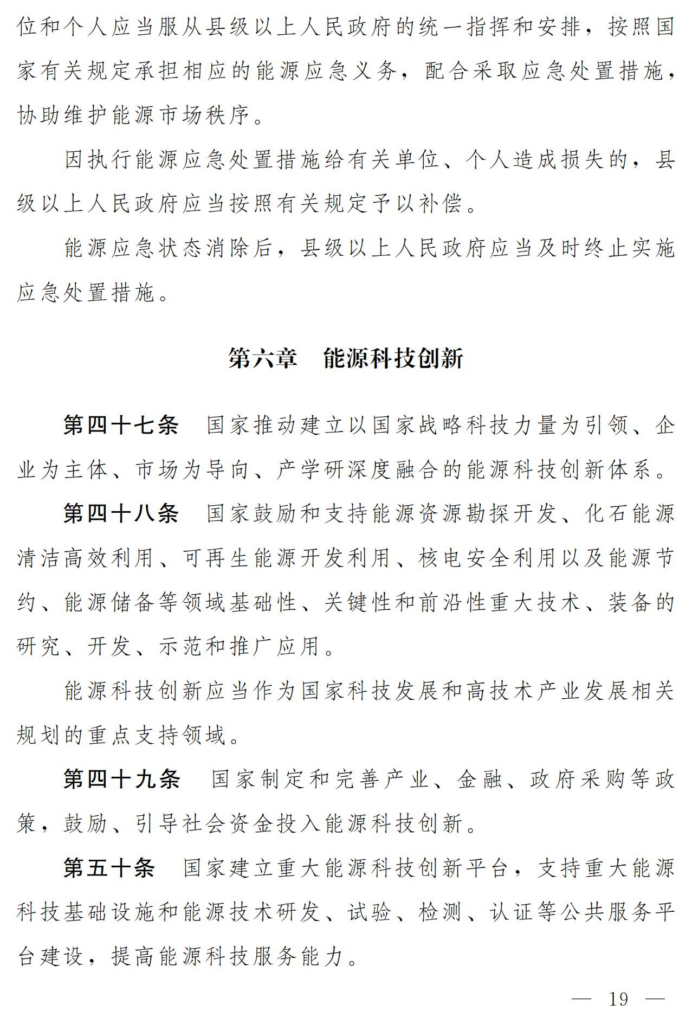
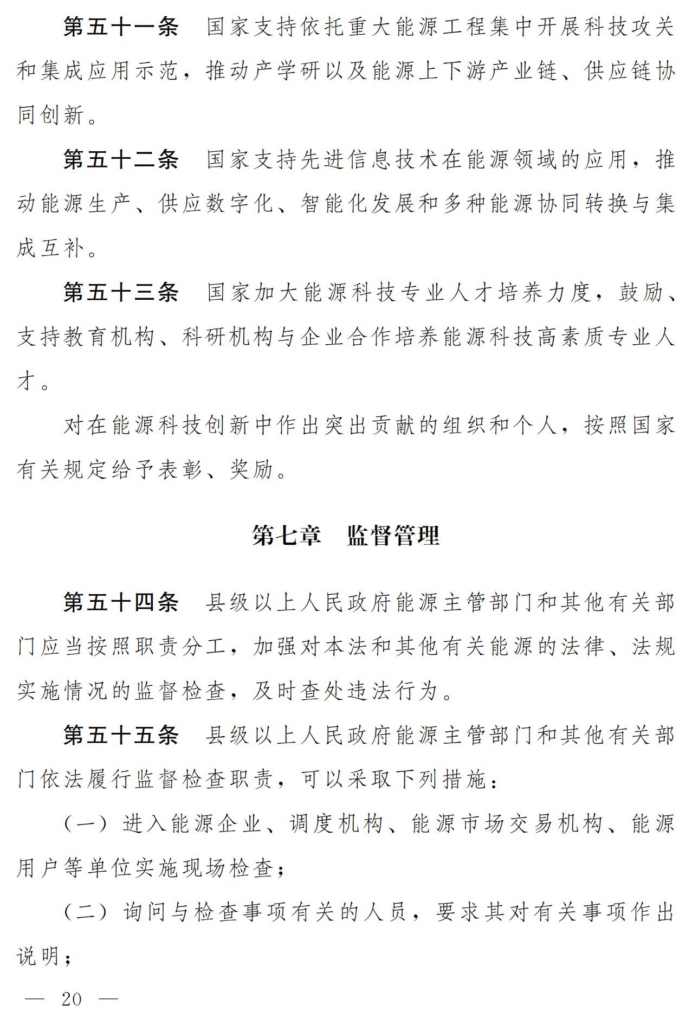
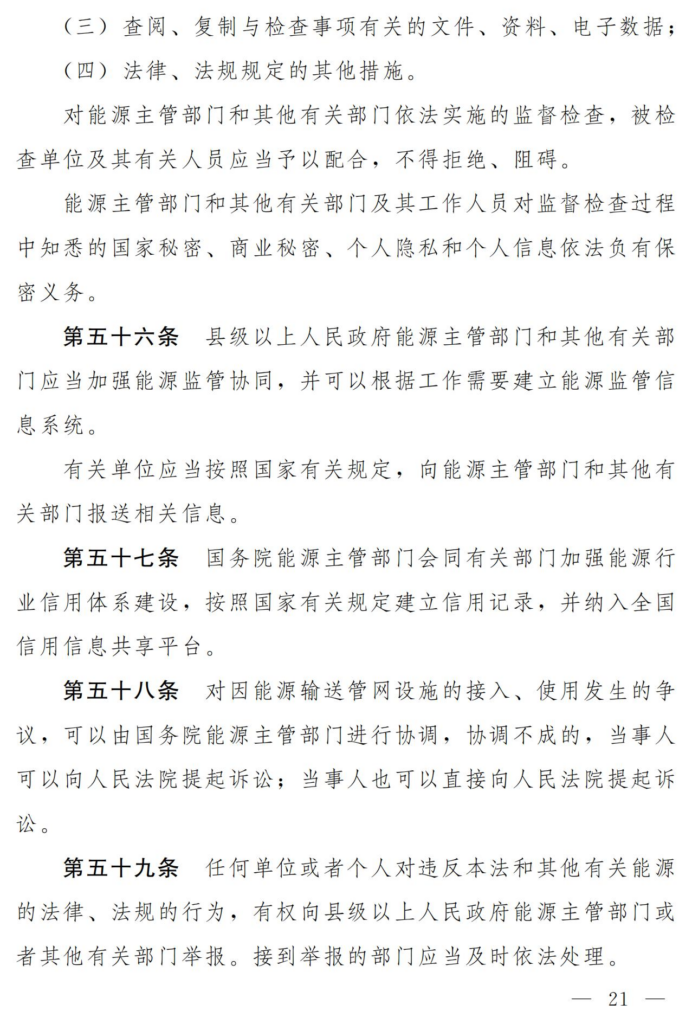
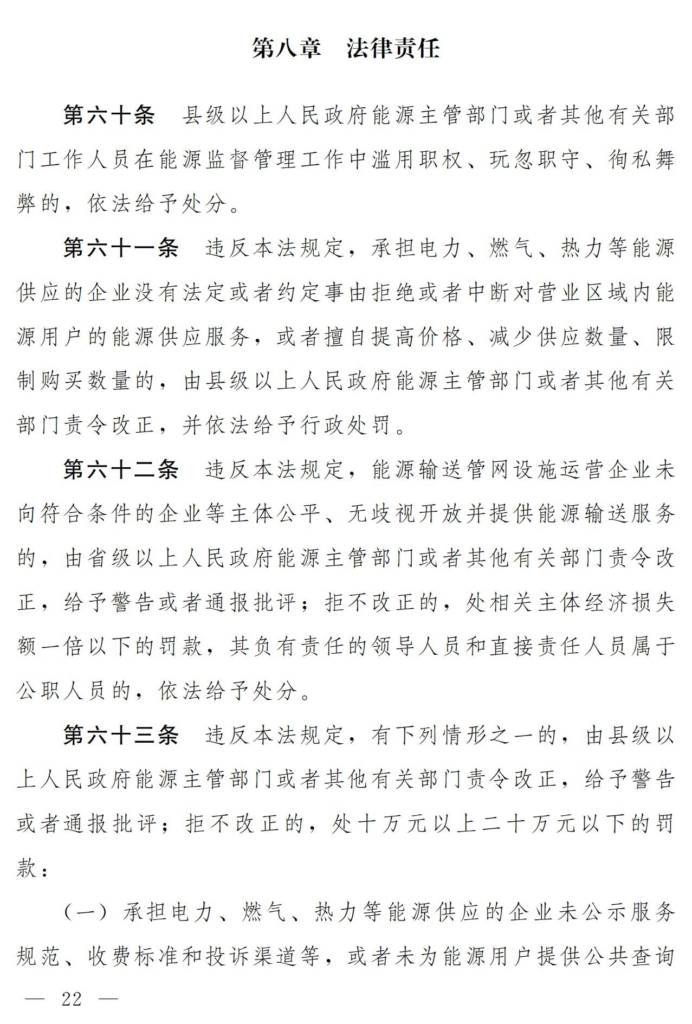
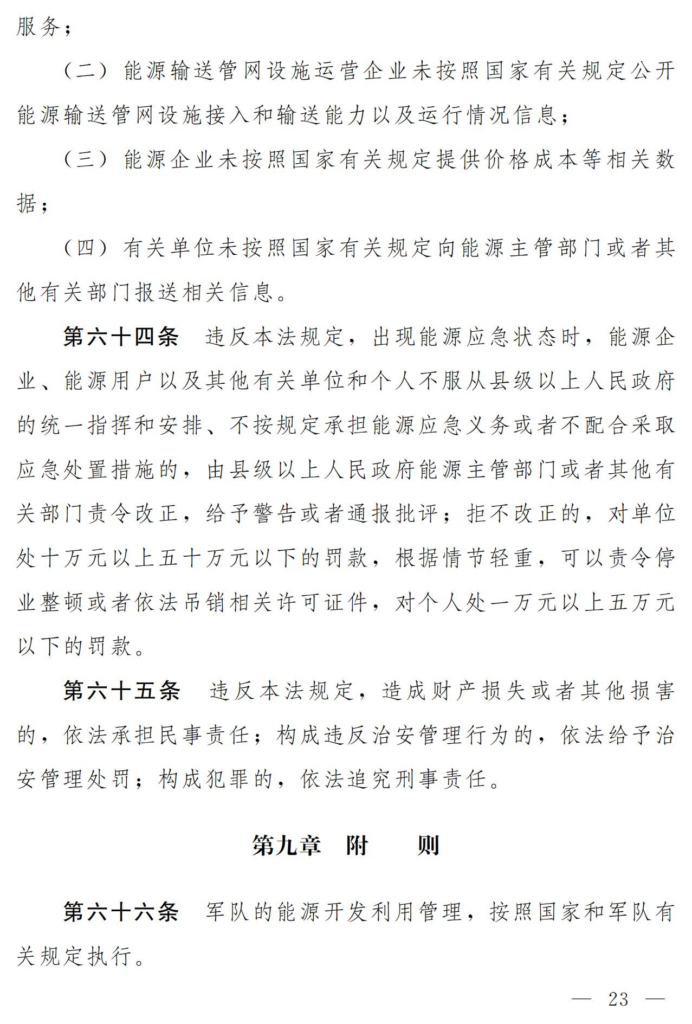

Special notice: Goodhao is reproduced from other websites for the purpose of transmitting more information rather than for profit, and at the same time does not mean to endorse its views or confirm its description, the content is for reference only. Copyright belongs to the original author, if there is infringement, please contact us to delete.
